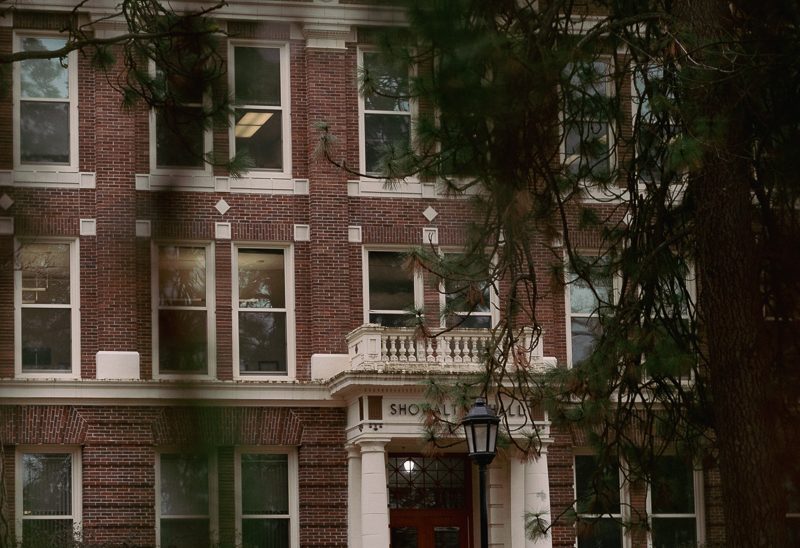The 2011-2012 Clery Act report published on Eastern’s website Oct. 1 brings to the public crime logs and reports of misconduct that occur on university grounds.
As mandated under federal law, all colleges and universities that participate in the federal aid program must abide by the Clery Act. This includes keeping a record and crime logs for the campus and surrounding community.
The Clery Act, formally known as the Crime Awareness and Campus Security Act, was established in 1990 after 19-year-old Jeanne Clery was raped and murdered in her residential hall on April 5, 1986. The act, enforced by the United State Department of Education, applies to public and private institutions.
Deputy Chief of EWU Police Gary Gasseling said the Clery Act came about because campus police at Lehigh University, where Clery attended, did not produce any statistics on a campus-wide level that informed the community of what crimes were committed.
“On a national level, law enforcements have done this for years,” Gasseling said.
The primary purpose of the act is to provide students with information regarding crime that occurs on and around their campuses. The act was amended in 1992 to include rights for sexual assault victims. In 2008, the act was amended again to include notifications of registered sex offenders, protection of “whistleblowers” and campus emergency response.
“The leading cause for us in this environment is alcohol. A large percent of all our crimes are driven by people who have been drinking. Now is that the only cause? No, but it is a primary function in almost all the sexual assaults we see,” Gasseling said.
According to the university’s sexual assault, harassment and misconduct information in the annual report, sexual misconduct includes, but is not limited to, rape, actions of sexual intercourse taking place against an individual’s will, sexual intercourse with individuals incapable of responding or resisting the sexual conduct.
Unwanted touching and fondling of any sexual nature is also classified as sexual misconduct. Information regarding rights of the victim and rights of the accused can also be found in the report.
Other Clery Act requirements include issuing campus alerts,
submitting crime statistics, disclosing missing student notifications, publishing an annual report by Oct. 1 within three calendar years and including fire safety information.
The Clery Act requires colleges and universities to report crime in seven main categories: criminal homicide, robbery, sex offenses, aggravated assault, burglary, arson and motor vehicle theft. Hate crimes must also be reported.
“People that are trying to decide what schools they’re going to, they have this information available to them so they can make an informed decision,” Gasseling said.
According to the Spokane County Sheriff’s Office Offender Watch, a public record of sex offenders, there are four sex offenders in a two mile radius of the university. One level one offender, two level two offenders and one level three offender.
A level one sex offender is considered an individual who is at low risk of re-offending. According to the university’s definition, these offenders are typically first-time offenders who are usually known by their victims. As stated, “Level one offenders may not be the subject of general public notification.” Level two offenders are individuals with a moderate risk of re-offending. These individuals usually have more than one victim. Level three offenders are those with the highest risk of re-offending. These individuals typically engage in violent crimes.
According to Cheney Chief of Police John Hensley, redacted reports are open for public viewing if they have been filed. The reports state the when, where and how of the situation.
Crime statistics from Jan. 1, 2010, through Dec.31, 2010, state that there have been seven forcible sex offenses on campus, seven forcible sex offenses off-campus and one on public property. From Jan. 1, 2009, to Dece. 31, 2009, there have been two forcible sex offenses reported on campus.
“There are multiple people that can actually collect data and for sexual assault specifically—an individual doesn’t have to file a police report to report something that happened. Someone maybe going to get emotionalservices and if that individual is a [campus security authority, they] can be disclosed for crime statistics,” said EWU Campus Police administrative assistant Taylor Vancurler.
According to Vancurler, the Clery Report is responsible for reporting incidents on campus.
“We try and do a lot of different programs in order to impact the crime rates. One of the things that we recognize is that a lot more crimes are opportunistic or alcohol ,” said Cheney Police Commander Rick Campbell. “Since we can do very little on our own to address opportunistic crimes, we make efforts to educate the public. For example, we tell people not to keep valuables in their cars, to lock their front doors … to avoid those opportunity crimes.”
Clery report relays campus crime statistics
October 10, 2012






![Simmons said the biggest reasons for her success this year were “God, hard work, and trusting [her] coach and what she has planned.”](https://theeasterner.org/wp-content/uploads/2024/05/image1-1-1200x800.jpg)












